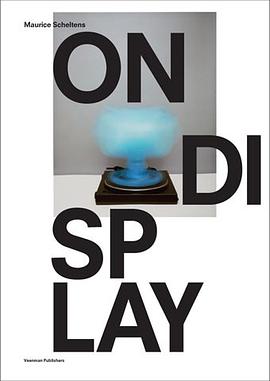

具體描述
The message at the core of this virtuosic book is heavily surrounded by packing and then wrapped with a pretty picture. The dustjacket is a kind of antique centrefold: the torso of the Barberini Faun, a sculpture much loved by Winckelmann and De Sade; if it were all visible you would see him flung back sleeping, thighs apart, equipment invitingly in full view. Yet this by no means epitomises the book inside, which is a highly erudite work of social and cultural history, astonishingly wide-ranging and very lengthy, and, unlike the Faun, not at all titillating. On the contrary, under cover of all the scholarship, it is a kind of paean, a panegyric to the high-mindedness and societal value of homophilia within the ancient Greek world. And, it is obliquely suggested, within ours.
It is an epic rhapsody in praise of what James Davidson calls (with a characteristic coinage) "homobesottedness". While bringing out the huge variety of homophilic phenomena in the Greek world, his persistent leitmotifs are the social bridging, the elevated aspirations and the lasting devotion that were the blessings of homobesottedness. His mission is to rehabilitate Greek same-sex love, to rescue it from all the slurs, the associations with unnaturalness, sickness, promiscuity, dirty furtiveness. He sets out to dispel the smut, the orgasm-centred gropings and pokings, above all to obliterate the modern obsession with what he calls "sodomania": besotted does not mean besodding.
Take "pederasty", a good Greek word made from paida, boy, and eran, to desire (the verb of eros). This sounds suspiciously close to "paedophilia", as hounded by the News of the World, the grooming of under-age children for sexual abuse - not such a "good" Greek word. But, as Davidson shows, with a wealth of evidence combined with deft deployment of cultural anthropology, this arises from a misunderstanding of paida, glossed as "boy". In a society, like many others but unlike ours, where age is measured not by mere years, but by "age-classes", a word like "boy" may include the whole life-stage between late teens and early 20s. Sexual importunings directed towards under-age boys were, he shows, as criminal then in Greece as they are now. He also claims, perhaps less cogently, that eran is a one-sided activity, not mutual, meaning "to admire", "be infatuated" rather than "desire", "want sex with" - in other words that it does not seek any physical outlet. This claim is rather undermined by the earliest surviving occurrence of the Greek word paiderastia, which is in Plato's Symposion (Wine-party), especially in the enchanting just-so story allocated there to the comic playwright Aristophanes. He tells how humans originally had near-spherical forms with four arms, four legs and so on, and two sets of genitals, some double-male, some double-female, some mixed. Zeus cut these creatures down to size by halving them (the belly-button is where the skin-pouch was drawn tight), relocating the genitals on the front side. It is, then, eros that infuses every one of us with a deep desire to be reunited with our separated half - a wonderful account of the longing for sexual union. And some pairs are male/male, some female/female and some male/female. This eros is mutual, and, it is worth noting, frontal, face-to-face.
Homophilia, same-sex love, is for Davidson "serious, permanent and real". So it is central to his mission to refute both the claim that "homosexuality" is a modern notion, and the associated thesis that in ancient Greece it was nothing to do with orientation, but was just a matter of the power of the penetrator and the subjugation of the penetratee - "sodomania". He argues with fervour, often verging on contempt, that the whole caboodle comes from an unholy alliance in the late 1970s between an English classical scholar and a French sage. Kenneth Dover was (and is) dedicated to discovering the truth and to calling a spade a spade; Michel Foucault was as dedicated to showing how what masquerades as "truth" is merely a construct, a means for exerting and perpetuating power. They could both agree, however, that Greek pederasty was all about the machismo of being the penetrator and inflicting humiliation on the subjected receptacle, the pathic anus. Davidson is, it seems to me, largely convincing in his polemic against this. Certainly the phallic penetration-obsession, which has infused so much of the discourse in the last 25 years, has no basis in the Greek - they did not have words for it. Their language of sexual congress, whether homo or hetero, was mainly about mixing, being together, moving together, shading in coarser slang towards banging and knocking. But not this horrible invasive vocabulary of forcible intrusion.
The Greeks and Greek Love is an extraordinary achievement, ranging far and wide across times and places, across cultures and disciplines. It also slaloms across styles and modes from the learned to the tabloid, from formal dialectic to loose musings, from tight argument to what seem more like jottings from a notebook. Such as this: "a Greek of the classical period can talk of an eros in which there is not only no sex and no attempt at sex, but no physical interest, a passionate yet chaste admiration for a young man's beautiful personality, and errr ... impressive muscular development ... " (so those muscles are not "physical"?). Davidson also does not hesitate to fly kites and chase hares, to assert what he calls at one point "this daisy-chain of links". Sometimes (inevitably) they are pressed too far. There is, for example, his recurrent motif that the sexual love between Achilles and Patroclus is at the heart of the Iliad. Yes, the bond between them is very close, the closest they shall know in their short lives. But there is no call to bring sex into it; and to do so Davidson has to turn a blind eye to the night in book nine where they both bed down with women. And he has to play up the wording of a line near the end of the poem where Achilles, sleepless with grief, is, according to him, "longing for Patroclus' manliness and spunk (menos)". Menos is a very common word for "strength", and this translation puts all its money on a phrase in a fragment of the highly un-epic poet Archilochus (a papyrus published in 1974). At the end of a scurrilous, semi-pornographic narrative he boasts "I let go my white menos". To read this tacky allusion to semen into the world of epic seems to have no justification except to sex up the relationship between Achilles and Patroclus, a circular daisy-chain. I notice, incidentally, that in a passage where Davidson riffs, in typical bravado style, on the whiteness of sperm, he ends: "You think I am getting carried away? I don't." But others may do.
But when a book is as unpredictable and lateral-thinking as this one, it is not difficult to forgive a fair over-the-top admixture. This is so much more stimulating than the caution that is conventional in scholarly publication (mind you, it is a caution that most of us are right to observe, since if we tried to flourish such panache as Davidson we would merely look silly). There is, though, one prejudice in this superb book that I object to: in the course of setting homophilia on its pedestal, he is very begrudging, even snide, about heterophilia, love between men and women. Their poetry shows in abundance that the Greeks were capable of powerful heterophilic love, both of soul and body. But Davidson's reaction leads him to an unwarrantedly derogatory picture. If you believe his occasional allusions, then virtual strangers steel themselves in bed in order to procreate for the good of society. A degree of mutual affection might develop if they are lucky; but the man's real desire will all, it seems, be distracted by his true love - for a beautiful boy, of course. This hardly does justice to Hector and Andromache, Perseus and Andromeda, Jason and Medea, Daphnis and Chloe, or even the men and women of Aristophanes' Lysistrata. Plato's Aristophanes, with his divided pairs of different sex-combinations, provides a more generous vision of the varieties of eros.
著者簡介
Dr James Davidson works on Greek social and cultural history and historiography at the University of Warwick. He has written articles on Polybius, Greek public bars and Dido and child-sacrifice and is a regular contributor to The London Review of Books, The Guardian, The Daily Telegraph and The Sunday Times.
His first book, Courtesans and Fishcakes: The Consuming Passions of Classical Athens was published in 1997. He has just published The Greeks and Greek Love for Weidenfeld and is currently working on a translation of some Attic speeches for Penguin Classics.
He served on the Council for the Society for the Promotion of Hellenic Studies from 2001 to 2004, and has been a member of the Classical Association Journals Board since 2000.
圖書目錄
讀後感
評分
評分
評分
評分
用戶評價
相關圖書
本站所有內容均為互聯網搜索引擎提供的公開搜索信息,本站不存儲任何數據與內容,任何內容與數據均與本站無關,如有需要請聯繫相關搜索引擎包括但不限於百度,google,bing,sogou 等
© 2025 book.quotespace.org All Rights Reserved. 小美書屋 版权所有




















